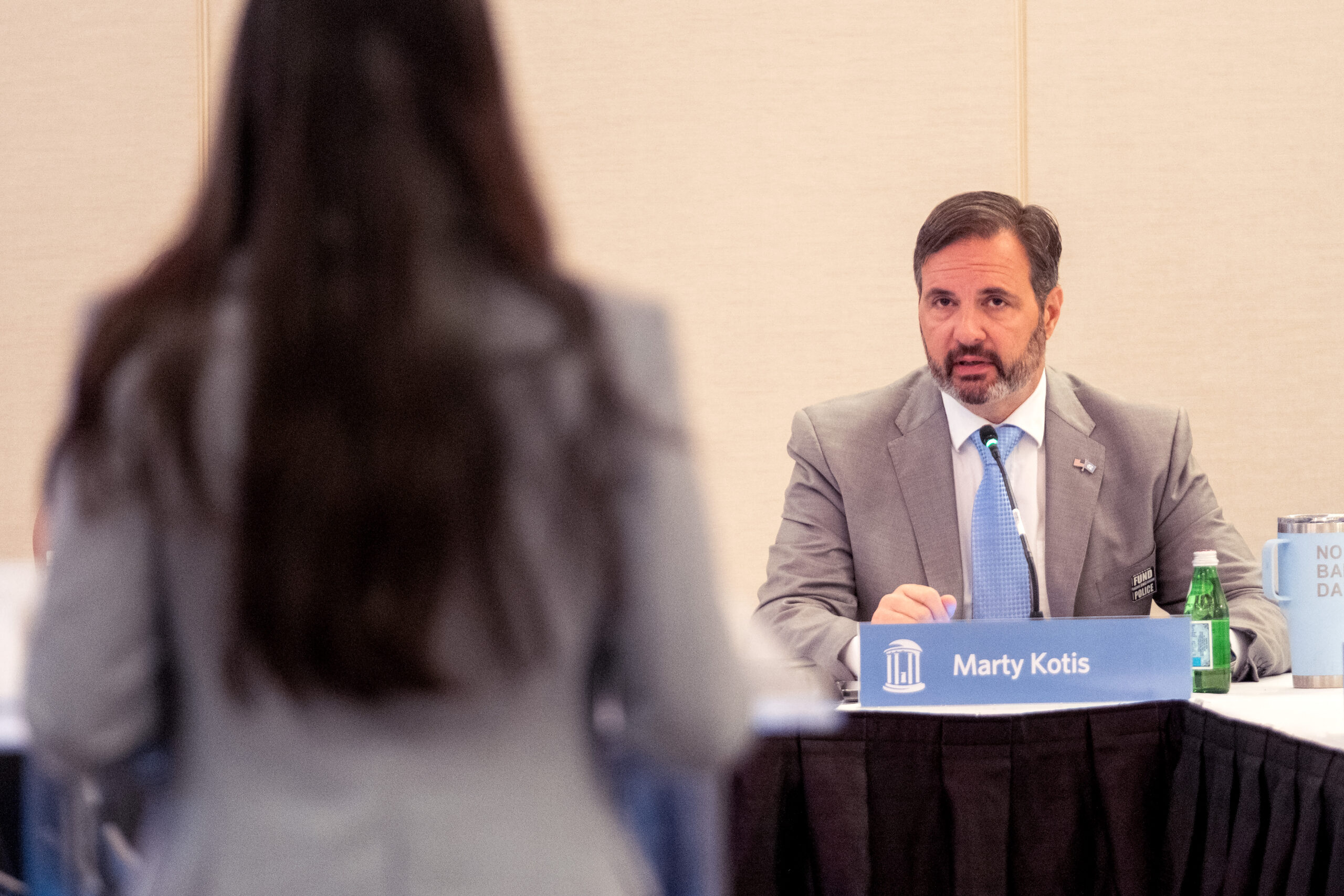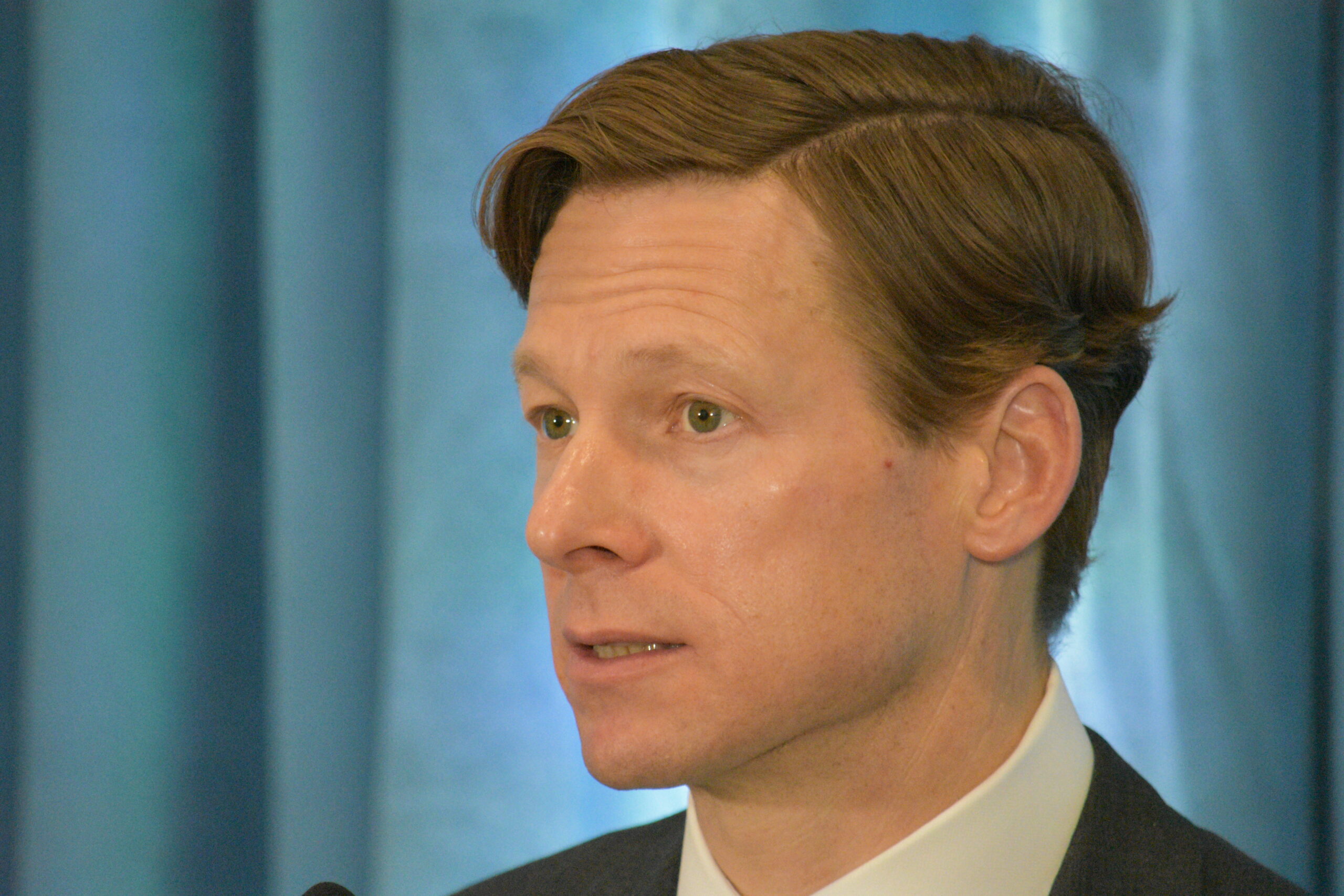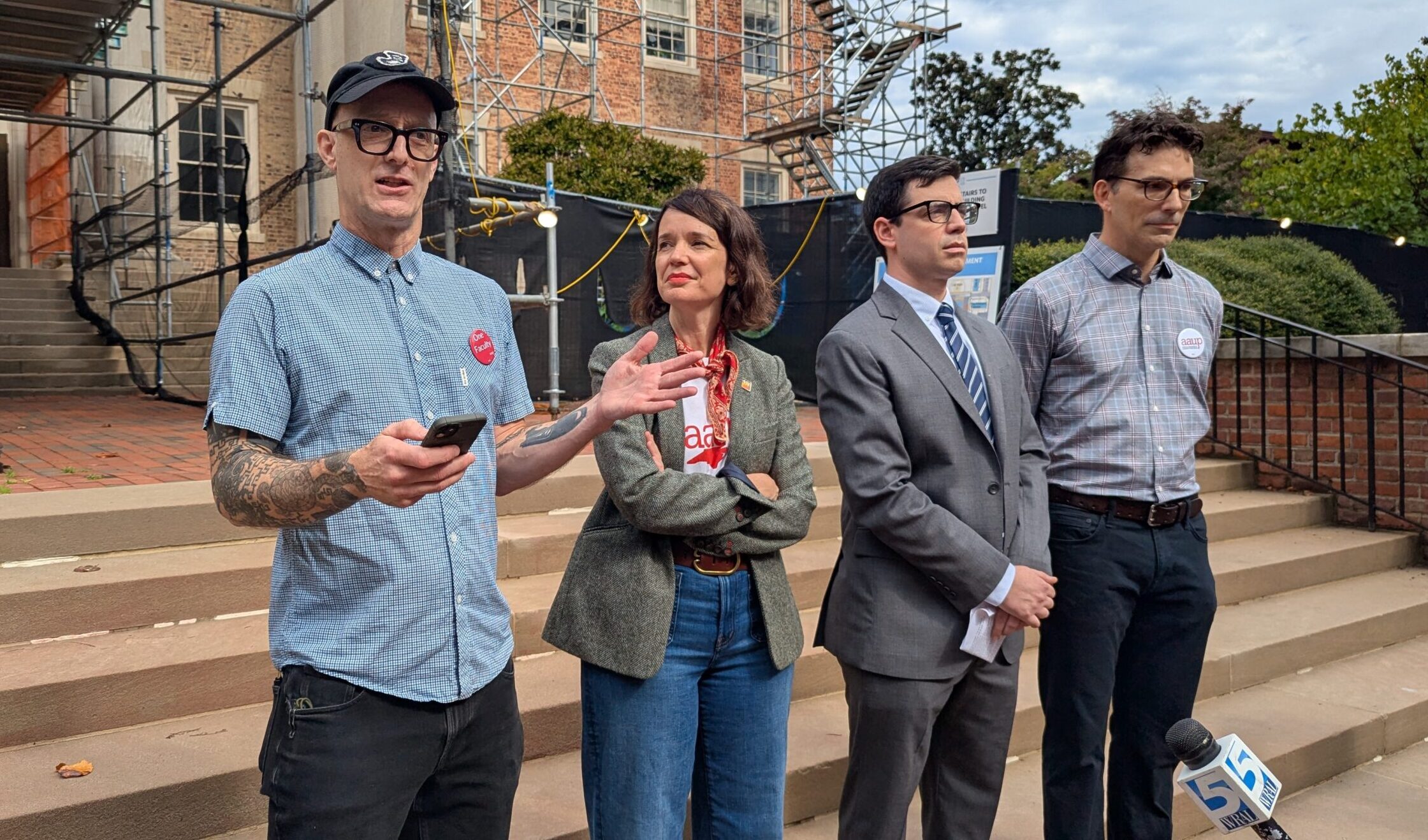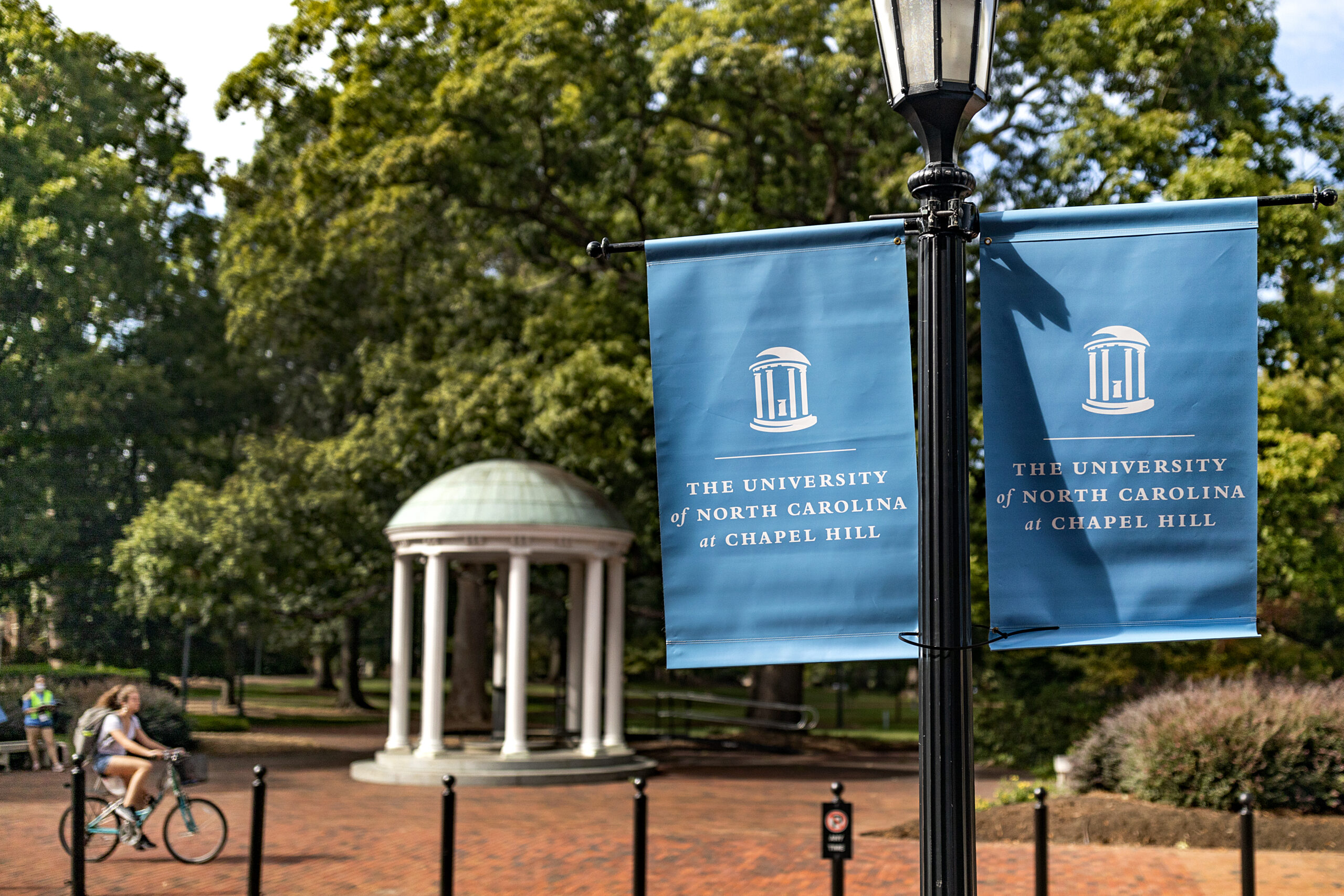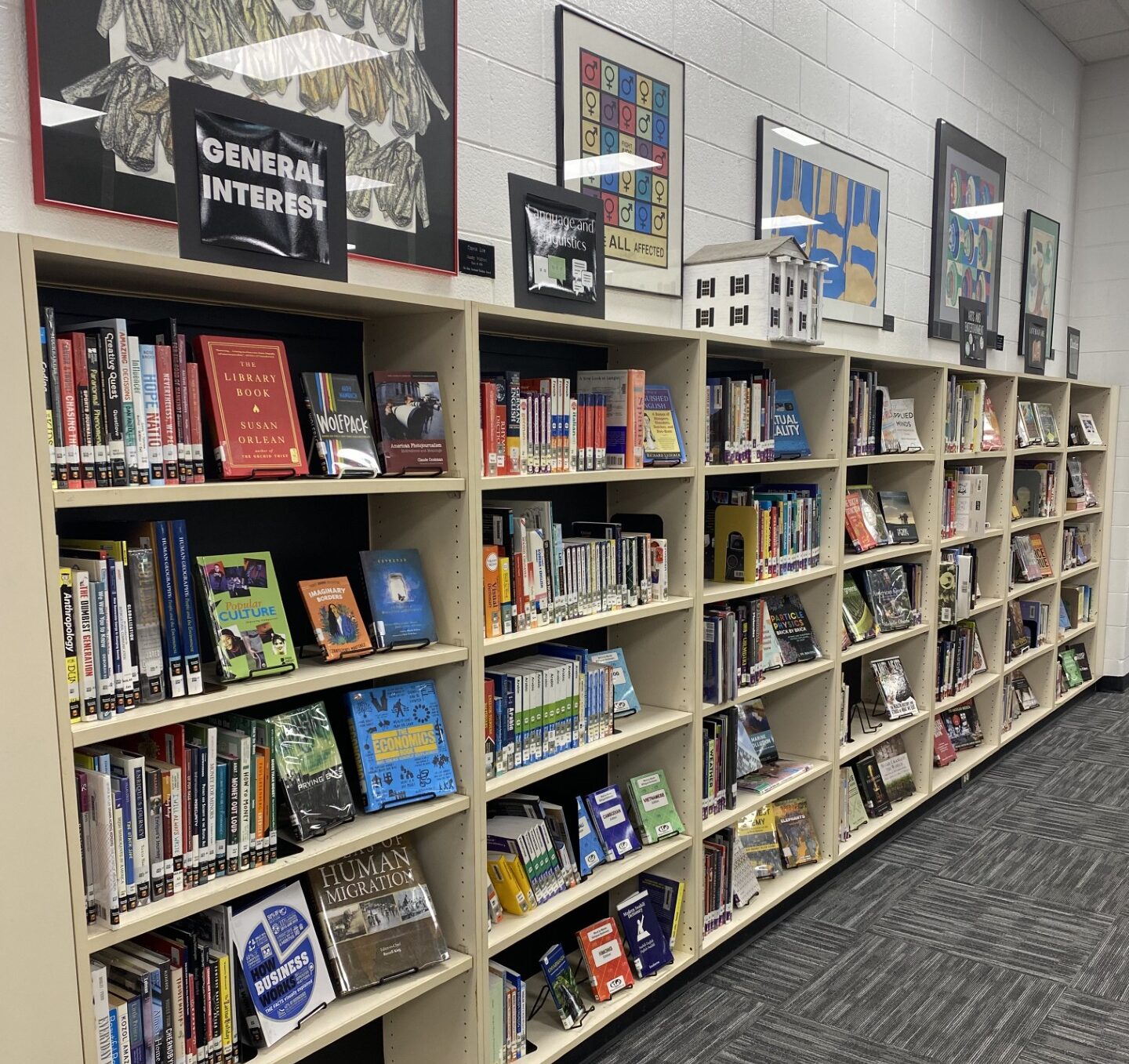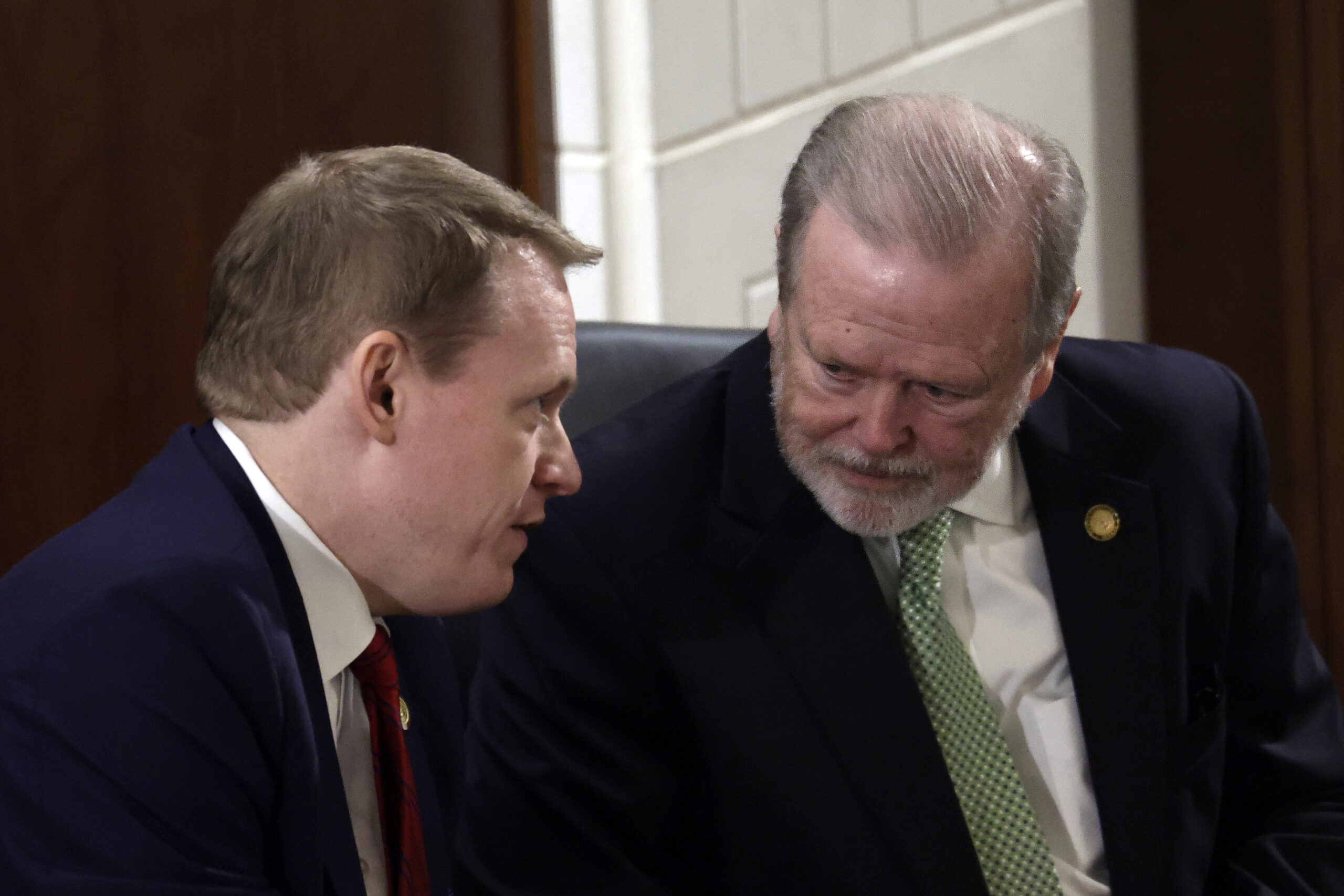The UNC System could potentially be sanctioned by a national organization of educators. The American Association of University Professors or AAUP released a report last week of the Special Committee on Governance, Academic Freedom and Institutional Racism within the UNC System.
The American Association of University Professors special committee report reads “The University of North Carolina system is in trouble, and not the kind of trouble that record enrollments or good rankings can fix.”
The committee said its report was centered around three themes: violations of standards of shared governance, threats to academic freedom and institutional racism – not only at the flagship campus in Chapel Hill but across all 17 campuses.
Michael Palm is the president of the UNC chapter of the AAUP. At a press conference held on the steps of the South Building he said the university has changed since he started in 2008.
“To put it bluntly, UNC is a lesser institution than it was when I started,” Palm said.
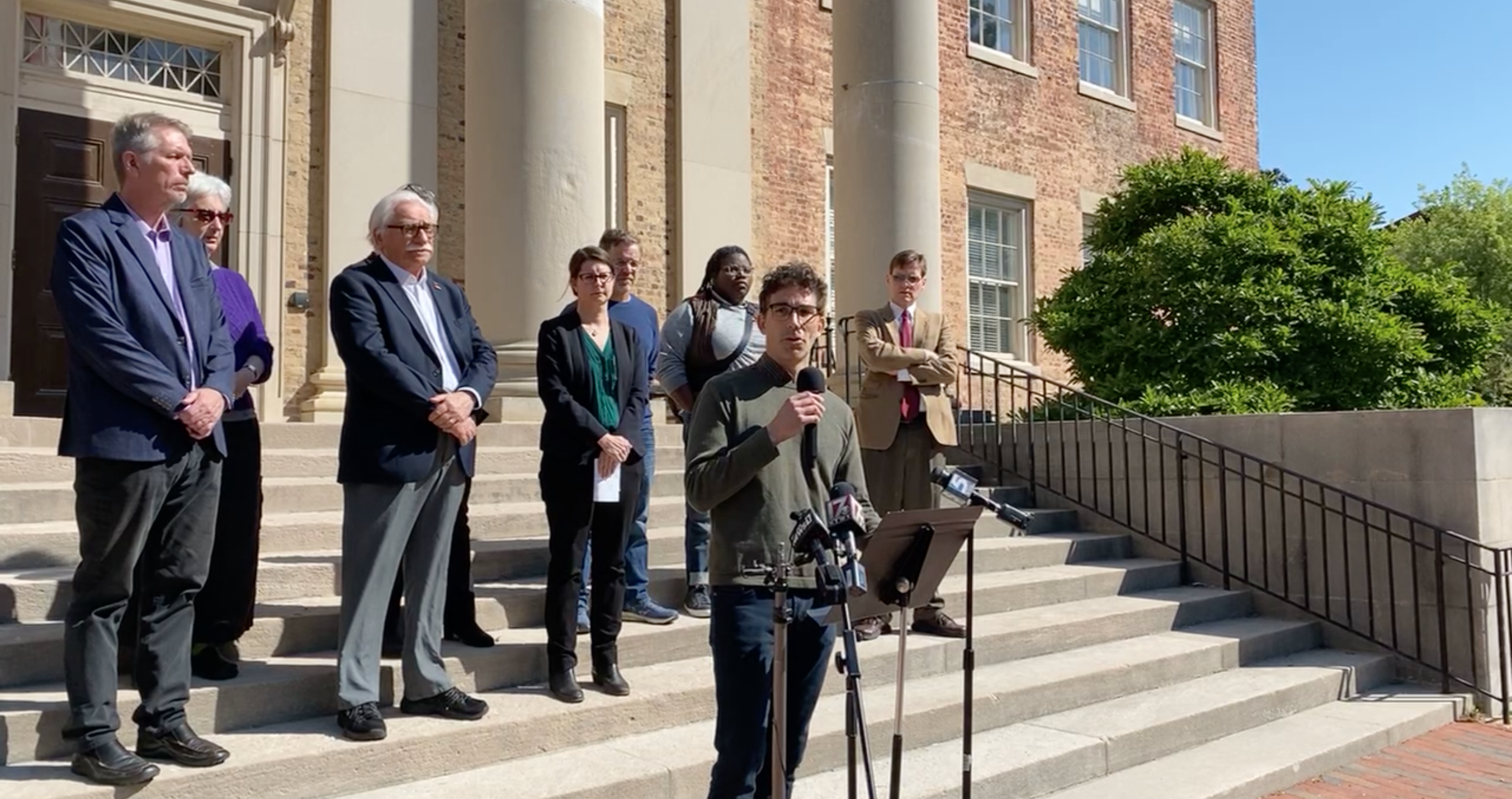
Michael Palm speaks at the AAUP press conference. (via the UNC AAUP)
The report said the special committee interviewed more than fifty individuals across the UNC System during November and December. UNC System president Peter Hans, UNC Chancellor Kevin Guskiewicz, UNC Board of Trustees chair David Boliek and UNC Board of Governors chair Randall Ramsey declined interviews from the committee.
Palm spoke to 97.9 The Hill about what the report means for the UNC System.
“It says that the Republican takeover of the North Carolina State Government in 2010, ushered in what the report calls a new era of political interference,” Palm said. “We have been dealing with the effects of that takeover for the past decade at UNC Chapel Hill, and at campuses throughout the UNC System.”
The report also cites institutional racism with the delay of tenure granted to journalist Nikole Hannah-Jones. It also cites the administration’s handling of the confederate monument Silent Sam both before and after its toppling.
Palm said the report links the issues of campus governance and academic freedom to institutional racism. He said the issues outlined within the report have an outsized effect on students, staff and faculty of color on campus.
“The report uses the phrase exodus to refer to the droves of faculty of color who have been leaving UNC over the past few years,” Palm said. “It’s very difficult to make a case for students of color or faculty of color or staff of color to stay at UNC or to come to UNC, given the racial climate on campus these past few years. There are a lot of people on campus who are trying to work to change this and hopefully the report can help us do that.”
Tori Ekstrand is a professor within the UNC Hussman School of Journalism and Media. The school was recently downgraded to a provisional accreditation status for being out of compliance with diversity and inclusiveness.
“This is where the rubber meets the road,” Ekstrand said. “ It’s sobering, and it’s heartbreaking. I’m the kind of person who hoped that that the difficult moments lead to good change. I think that’s where my mindset is and I’m already seeing good things happening in the school that are not in those reports or not in the public consciousness.”
She said another key aspect of the AAUP report is the chilling effect political interference has on faculty speaking out. Ekstrand said this creates a climate where professors and students pull back in fear that they may lose opportunities later.
“When one or a handful of parties have way more power, and that power is very concentrated say with the state of North Carolina, particularly concentrated in one party, it’s easier for those groups to serve up these chilling effects,” Ekstrand said. “We have felt it through the Silent Sam situation, we have felt that through the Hannah-Jones situation, we have felt it in multiple areas of the campus.”
The AAUP report now goes to the governing body of the AAUP which could recommend a sanction on the UNC System. Palm said only six universities have been sanctioned by the AAUP.
“The sanctions that would come from the AAUP, if they do indeed come, would be a huge black eye on the UNC system,” Palm said. “[They would] hopefully be something that can help us garner public support for the types of changes that we’re trying to make on campus in the face of political interference from the State Assembly, from the Board of Governors and the campus Board of Trustees.”
To read the full report, click here.
Chapelboro.com does not charge subscription fees, and you can directly support our efforts in local journalism here. Want more of what you see on Chapelboro? Let us bring free local news and community information to you by signing up for our biweekly newsletter.


